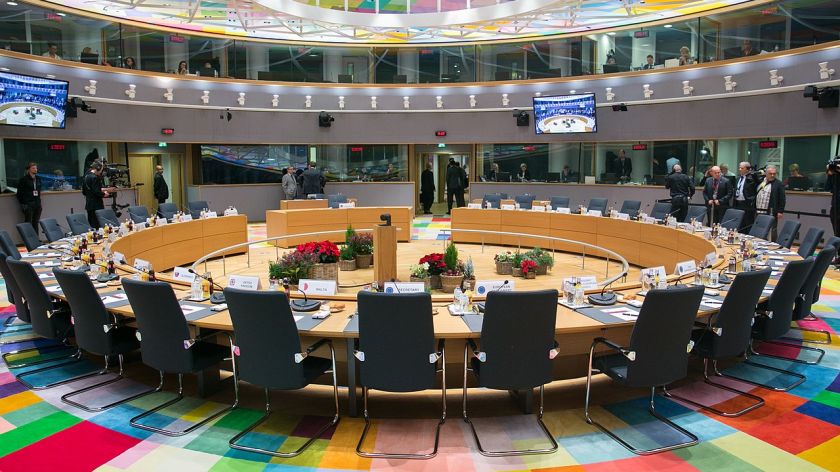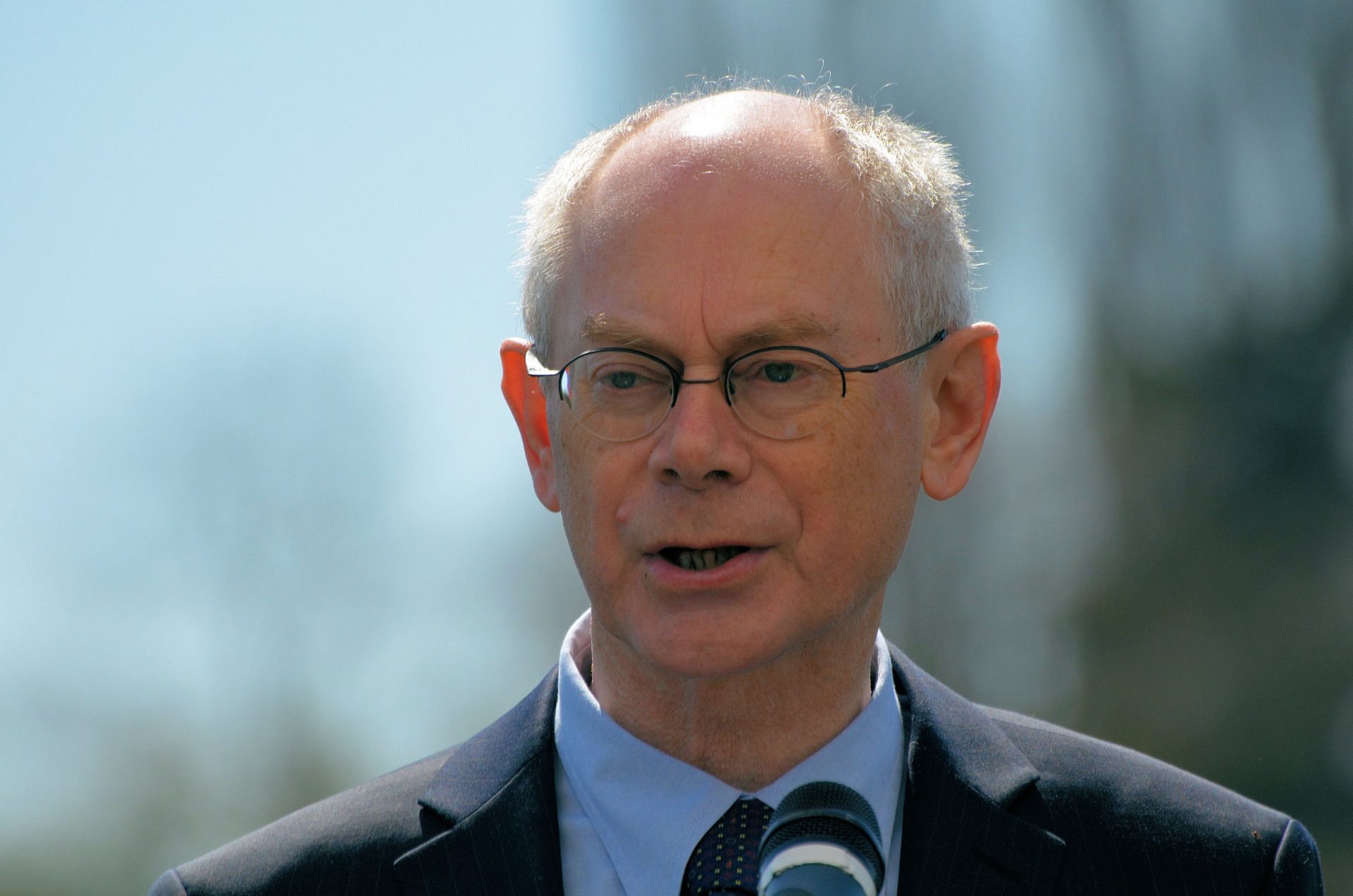Herman Van Rompuy, grey eminence of European politics, gives a lecture in Nijmegen
-
 Vergaderzaal in de Europese Raad. Foto: Wikimedia Commons
Vergaderzaal in de Europese Raad. Foto: Wikimedia Commons
A neutral figure of compromise, or a genius diplomat at heart? Eight years after his presidency at the European Council, opinions on Belgian politician Herman Van Rompuy are still divided. In a talk with Radboud Reflects, the grey eminence of European Politics, will shine his light on the future of the European Union.
Historian Joost Rosendaal has long been impressed by Belgian politician Herman Van Rompuy. ‘He always has a vision of where the world should be headed, which is again reflected in his recently published memoirs’, he says on the phone. ‘But even apart from his political career, he is an interesting man. He has a great interest in literature; he even writes haikus.’
The historian was therefore delighted when it became apparent that Van Rompuy would come to speak for the Nijmegen branch of the Flemish-Dutch Society for Dutch Language and Culture Orde van den Prince. Together with professor of the History of Philosophy and Science Christoph Lüthy, Radboud Reflects, Nijmegen School of Management and the Faculty of Law decided to invite the Belgian to give a lecture at Radboud University.
Calm firmness
Van Rompuy, now 75 years old, has a long political career behind him. He held several ministerial posts in Belgium and was also prime minister of the country for a year. Internationally, the Christian Democrat is mostly known as the first permanent chair of the European Council from 2009 to 2014. ‘Before that time, the presidency of the European Council rotated between European heads of government every six months’, Rosendaal explains. ‘There was a lot of circulation. Each time, you had to wait and see how well the new chair would do. A permanent chair would make for more calmness and stability, was the idea.’

During Van Rompuy’s presidency, Europe and the world were a lot more different than today. ‘During 2008 and 2009, there were an economic and a banking crisis’, Rosendaal says. ‘Slowly but surely, there came an end to the neoliberal winds that had been blowing through Europe since the 90’s, with lots of privatisation, a free financial sector, and lots of capitalism. Bit by bit, it became apparent that restrictions had to be placed on the financial markets.’
‘As prime minister, Van Rompuy contributed to a calmness in Belgium’
At the time, observers saw Van Rompuy, whose mantra was ‘calm firmness’, as a careful, manoeuvring diplomat at heart. Critics hated his lack of charisma. In a much-discussed debate in the European Parliament in 2010, British Eurosceptic Nigel Farage called the Belgian a wet mop – an insult that would later cost Farage a fine of 2890 euros.
Rosendaal refuses to believe that Van Rompuy’s neutral profile was the sole reason he was elected as chair of the European Council. ‘He was capable of more than being vague and not outspoken about things’, he says. ‘As prime minister, he contributed to a calmness in Belgium. That requires diplomatic skills, calmness, and charisma. Furthermore, the position of permanent chair of the European Council remained even after he left: that means it worked out well, and it was good to have a neutral president.’
Language diversity
In the Lindenberg (cultural centre in Nijmegen, ed.), scientists of three faculties will ask Van Rompuy questions on Tuesday 6 December. Legal expert Kris van de Pas focus on migration law, political scientist Indra Römgens on European decision-making and solidarity. On behalf of the Faculty of Arts, Rosendaal is mainly interested in Van Rompuy’s view on the cultural and geopolitical aspects of Europe, which he will question the Belgian on. ‘Should countries such as Georgia and Ukraine become members of the European Union? How do you preserve cultural diversity in Europe, such as in Catalonia or Scotland?’
Rosendaal is also interested in the Belgian politician’s view on language diversity. ‘English is still the lingua franca in Europe, but since Brexit, Ireland and the tiny country of Malta are the only EU member states where it is an official national language. What does that mean for higher education becoming increasingly more English? I am curious to know what Van Rompuy thinks about that.’
The Radboud Reflects lecture ‘Europe: solidary or solitary?’ with Herman Van Rompuy takes places on Tuesday 6 December from 8 pm to 9.30 pm in the Lindenberg. Tickets are 7,50 euro, Radboud employees pay 5 euros. For students and subscribers of Radboud Reflects, entry is free of charge.
Translated by Jan Scholten



